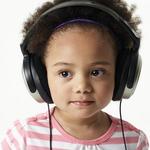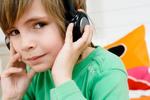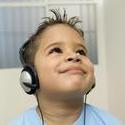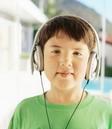Autism Research 2005: Report on the Changes in Scores for a Group of 13
Children with Autism After Berard Auditory Integration Training
Read
More
Clinical Research on AIT
Contact Us
Complete
On-line AIT Checklist
by Rosalie
Seymour, SLP/A, Berard AIT Practitioner and Maoilíosa Ó Rathaille, B.A., M.Sc., C.Stat., Lecturer in
Mathematics and Statistics, Waterford Institute of Technology
|
"AIT
does, in fact, appear to be a worthwhile, frequently beneficial intervention
which confers improvement in a number of symptoms, in a significant
proportion of disorders on the autism spectrum." |
This study was done to
answer two questions:
-
To determine whether AIT made
any difference for those children with autism who participated .
-
The next question to answer
was, is this difference bigger than one can expect from ordinary chance?
Two methods of assessment were
chosen:
While 17 children with
the diagnosis of Autism were included in this study, in total there were 13
parents who completed their before- and- after ATEC checklists and 12 who
returned their ABC forms. These checklists were completed before AIT
started, and then four months after the conclusion of AIT.
The
ATEC - Autism Treatment Evaluation Checklist gives a Total
score, as well as sub scores for
The
Autism Behaviour Checklist (ABC) has a total
score, then also
As we get to know more about
the results we get from AIT, we might be able to learn what to offer people
as expected outcomes. This does not seem altogether simple, since there is
quite a spread of possibilities of changes after AIT, making prediction a
bit hard to do.
RESULTS
Pre-AIT and Post-AIT scores were calculated for each of the
sub-scores and for the totals for both ATEC(n=13) and ABC(n=12) scores. The
hypothesis was tested to see if there was any change in performance between the
original scores and the scores found after the treatment was carried out (post-treatment
– pre-treatment). The results are summarised in Tables 1(ATEC) and 2(ABC)
below. In all cases, the 1-sample sign test for a median is used.
Table 1: Comparison of ATEC score changes for the two
groups after the study period
|
Factor
|
Median of the
differences
|
P-value: test of
no difference
|
Significant (5%)
|
|
|
0
|
|
No
|
|
|
-3
|
|
Yes
|
|
|
-1
|
|
Yes
|
|
|
-5
|
|
No
|
|
|
-9
|
|
Yes
|
These calculations show that
there were improvements for the group of children in Sociability,
Sensory/Cognitive awareness, and the total score.
The changes in Sociability,
Sensory – Cognitive and the Total scores are significant. That is, we
can confidently say they were not as a result of chance but likely to have
been due to AIT.
Table 2: Comparison of
ABC scores
|
Factor
|
Median of the
differences
|
P-value: test of
no difference
|
Significant (5%)
|
|
|
-11
|
|
Yes
|
|
|
-6
|
|
Yes
|
|
|
-4.5
|
|
No
|
|
|
-16
|
|
Yes
|
|
|
-4
|
|
No
|
|
|
-10
|
|
Yes
|
These results show that there
were improvements for the group in all the areas covered by this checklist.
There were significant changes in the areas of iritability, lethargy,
hyperactivity, and the Total scores. That is, we can confidently say
they were not as a result of chance but are likely to have been due to AIT.
The results of this study confirm the results of
other studies (Autism
Research Institute) that have shown significant changes
occur in areas of importance to the well-being and progress of children with
autism.
To quote Dr. Steven Edelson (Autism Research
Institute):
‘…a review of the available
literature on AIT has produced 23 studies with positive results and only 3
claiming no benefits from AIT. While none of the research done thus far on
AIT is of Nobel Prize quality, the positive studies are far more credible
than those with negative results. As we point out in our comments, the 3
studies that claim no benefits are deeply flawed, with conclusions that are
not supported by the research procedures nor the research data.
'AIT does, in fact, appear to
be a worthwhile, frequently beneficial intervention which confers
improvement in a number of symptoms, in a significant proportion of
disorders on the autism spectrum.’
| 





